Value Methods

How can we measure the value of ecosystem services ?
The article discusses various methods to measure the value of ecosystem services, which are benefits humans derive from ecosystems. These include provisioning, regulating, cultural, and supporting services. Measuring their value is crucial for informed decisions about management and conservation. Methods include direct market valuation, indirect market valuation, revealed preference methods, avoided cost method, replacement cost method, and benefit transfer method. By using these techniques, policymakers and managers can make informed decisions about resource allocation for ecosystem conservation and restoration.

How do private equity firms value companies ?
Private equity firms value companies using various methods, includingPrivate equity firms value companies using various methods, including, discounted cash flow ( These approaches help them assess the company's financial health, market position, growth potential, and risks to make informed investment decisions.
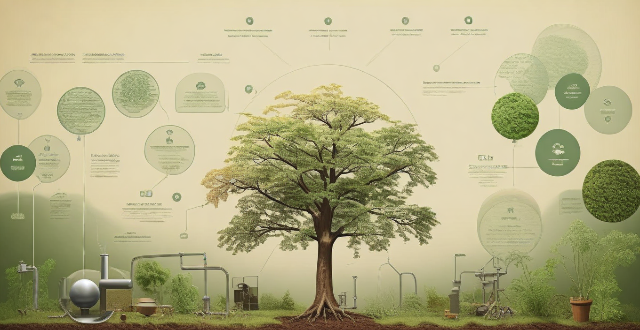
What methods can I use to simplify complicated equations ?
Simplify complex equations using techniques like factoring, combining like terms, applying the distributive property, elimination, substitution, graphical methods, completing the square, rationalization, using trigonometric identities, logarithmic properties, exponential rules, the Pythagorean identity, derivatives/integrals, matrix methods, and numerical approximation.

How is the value of carbon credits determined ?
Carbon credits are a valuable tool in the fight against climate change. Their value is determined by supply and demand, quality of the project used to generate them, and market conditions. Supply and demand can be influenced by government regulations, public opinion, and technological advancements. The quality of a carbon offset project can be influenced by verification and certification, additionality, and permanence. Market conditions such as economic growth, political stability, and global events can also impact the value of carbon credits.

How are carbon credits traded and what is their market value ?
The article discusses the trading of carbon credits, which are tradable permits allowing holders to emit certain amounts of greenhouse gases. It explains how carbon credits are traded and their market value, outlining steps in their creation, verification, issuance, trading, and retirement. It also notes that the market value of carbon credits varies based on project type, location, and demand for offsets.

How can I determine the value of a second-hand item before purchasing it ?
When considering purchasing a second-hand item, itWhen considering purchasing a second-hand item, it its value to ensure you' it's important to determine its value to ensure you're getting a fair deal. Here are some steps to help you assess the value of a pre-owned item: 1. Research the market price by checking online marketplaces, consulting auction houses, and reading reviews and forums. 2. Evaluate the condition of the item by inspecting for damage, considering age and obsolescence, and testing functionality. 3. Negotiate with the seller by making an offer based on your research and evaluation, being prepared to walk away if necessary, and asking for more information if needed.
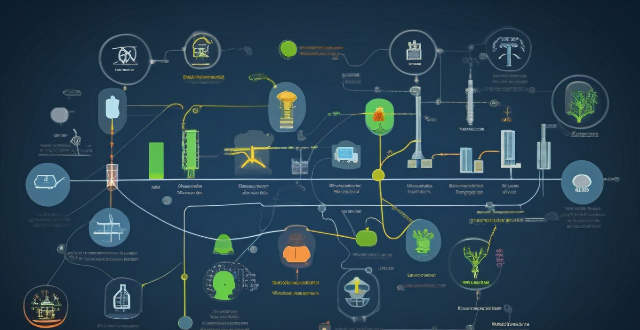
What are the most effective methods for improving industrial energy efficiency ?
The most effective methods for improving industrial energy efficiency include process optimization, using energy-efficient equipment, harnessing renewable energy sources, thermal management, power management, employee training and awareness, employing energy information systems, and complying with policy and regulatory standards. These methods can reduce operational costs, conserve resources, and minimize environmental impact.

How can I make sure I'm getting the best value for my money when shopping ?
When it comes to shopping, ensuring you're getting the best value for your money is crucial. Here are some tips to help you make informed decisions and get the most out of your purchases: 1. Research Before You Buy: Read reviews, compare prices, and check for sales and discounts. 2. Set a Budget: Determine your needs, prioritize items, and allocate funds accordingly. 3. Choose Quality Over Quantity: Invest in durable items and consider warranties and guarantees. 4. Take Advantage of Loyalty Programs: Join reward programs and use credit card rewards wisely. 5. Don't Forget About Return Policies: Understand store policies and keep receipts organized. By following these tips, you can ensure that you're getting the best value for your money when shopping. Remember to take your time, do your research, and make well-informed decisions to get the most out of your purchases.
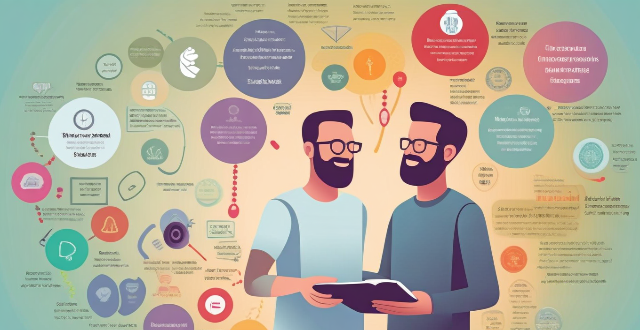
How can I improve my memory using science-based methods ?
Improving memory can be achieved through various science-based strategies, including repetition, visualization, storytelling, mnemonic devices, chunking, maintaining a healthy lifestyle, practicing mindfulness and meditation, engaging in active learning, considering environmental context, and staying mentally active. These methods help move information from short-term to long-term memory, making it easier to recall later. Consistency and patience are crucial for enhancing cognitive functions.

How can augmented reality transform traditional teaching methods ?
Augmented Reality (AR) can revolutionize traditional teaching methods by providing an interactive and immersive learning experience. It can make learning more engaging, provide personalized feedback and guidance, facilitate group projects and remote collaboration, and provide contextual learning and virtual field trips. Incorporating AR into the classroom can create a more engaging and effective learning environment for students.

How can teachers effectively integrate multimedia resources into their innovative teaching methods ?
Integrating multimedia resources into teaching methods can greatly enhance the learning experience for students. Teachers should identify learning objectives, choose appropriate tools, create interactive lessons, encourage student participation, integrate technology in assessments, provide access to online resources, and continuously evaluate and update their methods. This approach ensures that teaching remains innovative and engaging for students.

How to manage payment methods for my Apple account ?
Apple offers multiple payment methods for users, including creditApple offers multiple payment methods for users, including credit Apple Pay, and gift cardsManaging your payment methods ensures a smooth experience when making purchases on Apple services like the App Store and iTunes Store.

What are the most effective methods for analyzing climate data ?
Analyzing climate data is a complex task that requires a deep understanding of the subject matter and the use of advanced statistical techniques. Some of the most effective methods for analyzing climate data include time series analysis, regression analysis, spatial analysis, principal component analysis (PCA), and machine learning algorithms. These methods help researchers to identify patterns, trends, and cycles in climate data, determine relationships between variables, analyze data with a geographical component, reduce the dimensionality of large datasets, and identify patterns and trends not apparent through traditional statistical techniques. By using these methods, researchers can gain insights into our changing planet and predict future climate conditions based on current trends.

How do ecosystem-based adaptation methods contribute to climate resilience ?
Ecosystem-based adaptation (EBA) methods play a crucial role in building climate resilience by leveraging the natural capacity of ecosystems to mitigate and adapt to the impacts of climate change. These approaches focus on conserving, restoring, and promoting sustainable management of ecosystems to provide essential services that help communities cope with climate-related stresses. Below are several ways EBA methods contribute to enhancing climate resilience: Protection from extreme events, enhancement of biodiversity, promotion of sustainable livelihoods, regulation of water resources, carbon sequestration and storage, community empowerment and education, disaster risk reduction, and research and innovation.
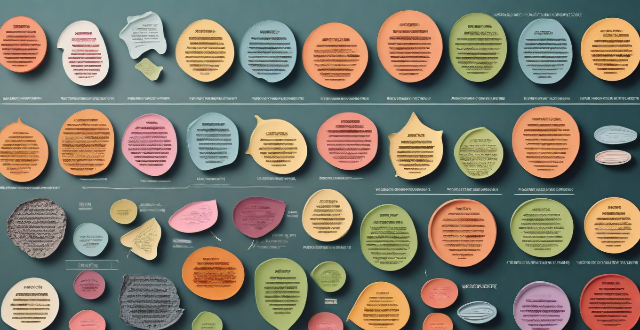
How does climate change impact the nutritional value of crops ?
Climate change is affecting the nutritional value of crops by altering CO2 levels, temperature fluctuations, and water availability. Elevated CO2 concentrations can lead to nutrient dilution in staple crops like wheat, rice, and soybeans. Temperature extremes cause protein denaturation and interfere with enzyme function, reducing nutrient content. Water stress from drought or flooding impairs nutrient uptake and synthesis. Adaptation strategies include breeding resilient crop varieties, implementing efficient irrigation systems, and using protective structures against extreme temperatures. By addressing these challenges, it's possible to maintain crop nutrition amidst climate change impacts.

Can you discuss the impact of personalized learning on innovative teaching methods ?
Personalized learning, an educational approach that tailors instruction to individual students' needs and preferences, has significantly influenced innovative teaching methods. This approach emphasizes a student-centered learning environment, flexible use of technology and space, and data-driven decision making. As a result, teaching methods have evolved to include differentiated instruction, mastery-based assessments, self-directed learning opportunities, and the integration of technology. These changes aim to create a more engaging, effective, and personalized educational experience for each student, fostering deeper understanding and higher retention rates.

Can you discuss the environmental impact of various energy storage methods ?
The text discusses the environmental impact of various energy storage methods, including batteries, pumped hydro storage, compressed air energy storage (CAES), and flywheels. It points out that while these methods allow for the efficient use of renewable energy sources and help to balance supply and demand, they also have varying levels of environmental impact. For example, battery production can result in water pollution and deforestation due to raw material extraction, while pumped hydro storage can affect local ecosystems and communities through land use and water usage. CAES may face challenges such as geological requirements and efficiency issues, and flywheels are considered an environmentally friendly option with a low environmental footprint. The text concludes that it is essential to consider both the efficiency and environmental implications of different energy storage solutions to ensure a sustainable future for our planet.

What are some innovative methods for teaching climate change in schools ?
Innovative Methods for Teaching Climate Change in Schools Climate change is a pressing issue that requires innovative approaches to teaching. Here are some methods that can help engage students and promote critical thinking: 1. Interdisciplinary Learning 2. Project-Based Learning (PBL) 3. Service Learning 4. Technology Integration 5. Inquiry-Based Learning 6. Field Trips and Experiential Learning
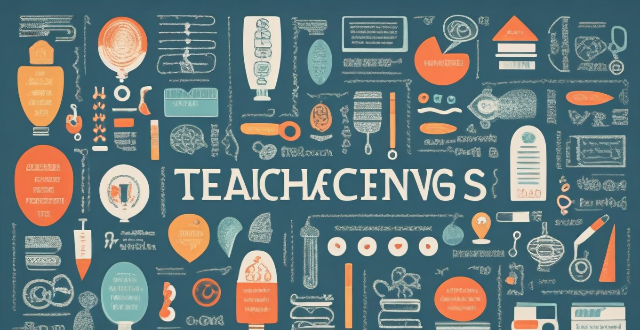
What are some innovative teaching methods that can enhance student engagement ?
Innovative teaching methods, including Project-BasedInnovative teaching methods, including Project-Basedroom, Gaming and Simulation Gaming and Simulations, Peer Teaching and Tutoring, Technology Integration, and Service Learning, are designed to enhance student engagement by fostering critical thinking, problem-solving, collaboration, and real-world application of knowledge. These approaches aim to make learning more interactive, relevant, and enjoyable for students, ultimately contributing to their academic success and personal growth.

How does a carbon tax compare to other methods of reducing carbon emissions ?
The article discusses the comparison of a carbon tax to other methods of reducing carbon emissions. It explains what a carbon tax is and lists other methods such as renewable energy sources, energy efficiency, carbon capture and storage, and forest management. The article then compares these methods in terms of cost-effectiveness, implementation speed, public acceptance, and environmental impact. It concludes that while a carbon tax is effective, it should be part of a broader strategy including investments in renewable energy, energy efficiency measures, CCS technology, and forest management for the best results in combating climate change.
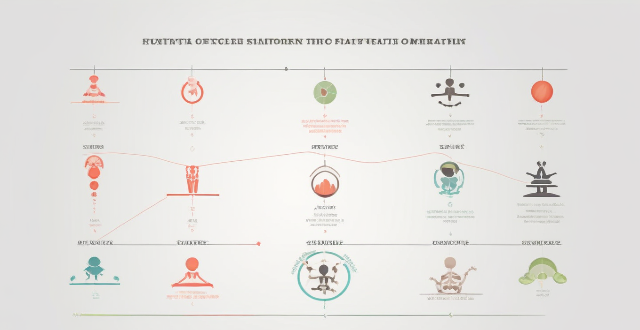
Are there any specific training methods that celebrities use for muscle building and fat loss ?
Celebrities use a variety of training methods and nutrition plans to achieve their desired physique, including High-Intensity Interval Training (HIIT), weightlifting, cardiovascular exercise, Pilates and yoga, functional training, and strict nutrition plans. These methods are designed to burn fat, build muscle, improve flexibility and balance, and support overall fitness and mobility. However, individual results may vary depending on various factors.

What are some effective methods for reviewing and retaining information before an exam ?
Preparing for an exam can be a daunting task, but with the right strategies and techniques, it is possible to effectively review and retain information before the exam. Some effective methods for reviewing and retaining information before an exam include creating a study plan, using active learning techniques, practicing retrieval and recall, and staying motivated and avoiding procrastination. By following these methods, students can improve their chances of success on their exams.
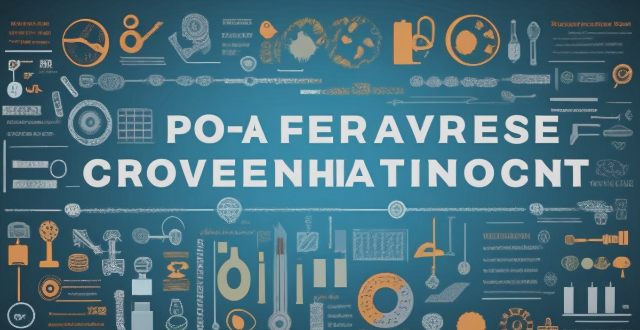
How does real estate investing compare to other methods of wealth growth ?
This text compares real estate investing with other wealth growth methods. It outlines the advantages and disadvantages of real estate investing, such as appreciation, cash flow, tax benefits, leverage, and diversification, but also mentions liquidity issues, management responsibilities, market risks, high upfront costs, and the risk of tenant damage. The text then explores alternative wealth growth methods, including stock market investing, bond investing, cryptocurrency investing, art and antiques investing, and gold and precious metals investing. It highlights the pros and cons of each method, such as liquidity, diversification, stability, fixed income, high risk/high reward, technology exposure, aesthetic value, scarcity, subjectivity, storage and maintenance, hedge against inflation, physical asset, limited upside, storage and insurance costs, and no cash flow. Finally, the text emphasizes the importance of understanding the risks and rewards associated with each option and choosing the one that aligns with your financial goals and risk tolerance.

Can I transfer credit card rewards to another person ?
**Summary:** The article discusses the possibilities and limitations of transferring credit card rewards to another person. It explains the different types of rewards, such as cashback, points, and miles, and outlines direct and indirect methods for transferring them. Direct transfer options may be limited, but alternative methods like gift cards or merchandise can be used to share rewards. The article also highlights potential limitations, including fees, tax implications, and expiration dates, emphasizing the importance of understanding the terms and conditions of the rewards program.

Is ecological design more expensive than traditional design methods, and is it cost-effective in the long term ?
The article explores the cost implications of ecological design compared to traditional design methods. It acknowledges that ecological design, which emphasizes energy efficiency and sustainability, often comes with higher upfront costs due to factors such as more expensive materials and specialized labor requirements. However, it argues that these initial expenses can be offset by long-term benefits like reduced energy and water bills, lower maintenance costs, improved indoor air quality, and increased property value. The article uses an example of an energy-efficient building to illustrate how the cumulative savings from these benefits can outweigh the initial additional costs over time. In conclusion, while acknowledging the higher upfront costs, the article asserts that ecological design is more cost-effective in the long run and represents a wise investment for both homeowners and developers.

How do I maximize the value of coupons and promotional codes ?
Coupons and promotional codes are a great way to save money on your purchases. Here are some tips: 1. Use Them Wisely: Combine coupons and stack promotions for maximum savings. 2. Plan Ahead: Check expiration dates and plan your shopping trips accordingly. 3. Be Strategic: Use coupons on high-value items and stock up on essentials when they go on sale. 4. Sign Up for Rewards Programs: Join loyalty programs and follow brands on social media for exclusive offers.

Are there any restrictions on how I can use my credit card rewards ?
Using credit card rewards can save money and add value to purchases, but it's crucial to understand potential restrictions. Restrictions may include limited redemption options, expiration dates, minimum thresholds, blackout dates/capacity controls for travel expenses, transfer partnership requirements, and tax implications. By understanding these limitations, you can maximize the value of your rewards while avoiding surprises.

What are the taxes and duties involved in global shopping ?
Global shopping popularity has grown, but understanding the taxes and duties involved is crucial for informed purchasing decisions. Types of taxes and duties include import duty, value added tax (VAT), customs clearance fee, and excise tax. To calculate these charges, one needs to know the product category, country of origin, value of goods, and local tax laws. The responsibility for payment can be on either the seller or the buyer, depending on the transaction terms. To avoid unexpected charges, research before buying, ask for a full cost breakdown, and consider using a package forwarding service.

What is the difference between term life insurance and whole life insurance ?
Difference between term life insurance and whole life insurance: - Term life insurance is temporary coverage, no cash value, renewable, and affordable. - Whole life insurance is permanent coverage, accumulates cash value, has level premiums, and is more expensive.